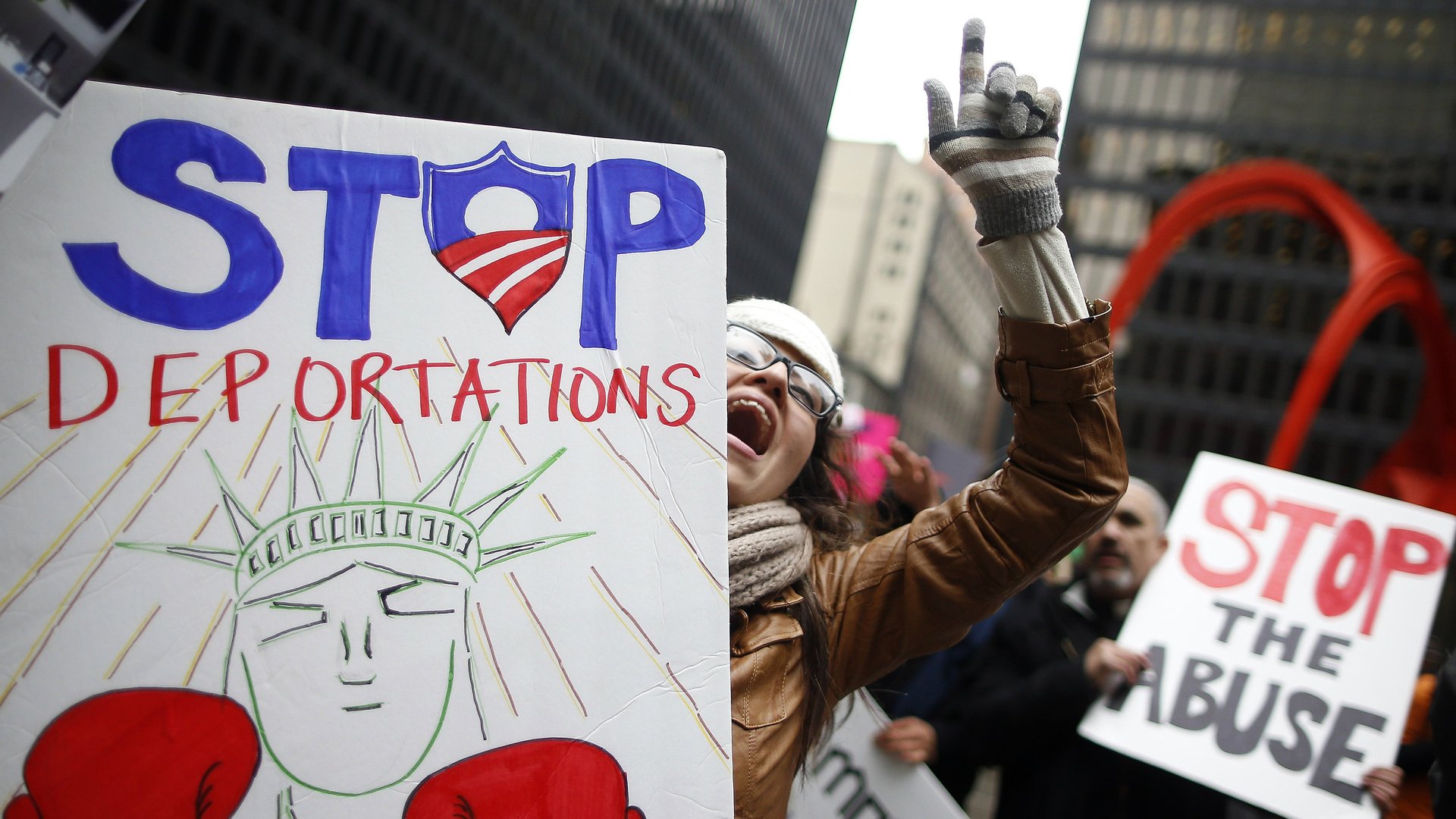“Sanctuary restaurants” are popping up in the US to protect their immigrant workers from Trump
A new movement is coming to boil among independent restaurateurs in America.


A new movement is coming to boil among independent restaurateurs in America.
Concerned about US president Donald Trump’s hardline approach to immigration, these small business owners are beginning to line up to stand as a first line of defense for their staff—many of whom are immigrants, and some of whom are in the US illegally.
Restaurant owners are signing up in droves to be designated as “sanctuary restaurants” by the Restaurant Opportunities Centers United, an industry trade group. By proclaiming themselves “safe spaces” for immigrant and LGBTQ workers, they accept that much of the national conversation around immigration will be battled out in the restaurant industry.
“It was a no brainer to sign on,” Michael Landgarten, the owner of Bob’s Clam Hut in Kittery, Maine, told Quartz. Trump’s hardline approach “just doesn’t feel like our true values in terms of being open-armed and giving people pathways to succeed and contribute,” he added.
Landgarten said the rhetoric from the White House has had an acute effect on the American restaurant industry. That makes sense. The US food service industry has long relied on the work of minorities, including many who immigrated to the US.
The US Bureau of Labor Statistics in 2015 showed American restaurants employed some 9 million people—about 25% of which are Hispanic or Latino.
Starting this week, restaurants across the country—from small-town delis to fancier eateries—have signed on to become “sanctuary restaurants,” something they hope will send a clear message to their employees, communities, and Washington that hardline policies won’t be received well.
“We have folks who’ve been harassed on the bus where people have told them, ‘We’re going to build that wall’ and ‘Your time is limited,’ ” said Paul Saginaw, a founding partner of Zingerman’s Delicatessen in Ann Arbor, Michigan. “Their children hear this, too. Our staff felt under attack.”
Designated restaurants agree to measures like adopting anti-discrimination policies and giving access to know-your-rights training webinars, which include instructions for asking federal immigration agents for proper paperwork in the case of a raid.
Practically speaking, the designation will most likely amount to a sticker on a restaurant’s front door or cash register, but could escalate to mimicking other sanctuary movements in the country (including in many churches) that have vowed to bar police from questioning people about their immigration status or even declining to cooperate with federal authorities.
This week, the Trump administration has clashed with US “sanctuary cities,” threatening to cut off federal funding to those cities if they run into opposition. Those cities include New York, Chicago, and Los Angeles—but also smaller cities such as Syracuse in New York and Austin, Texas.